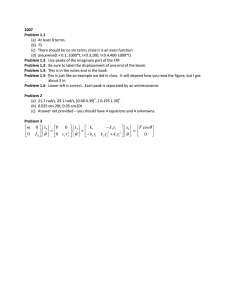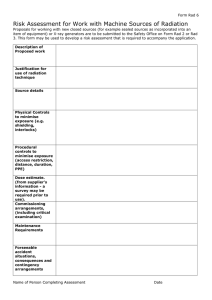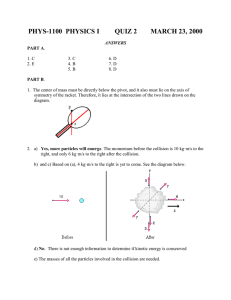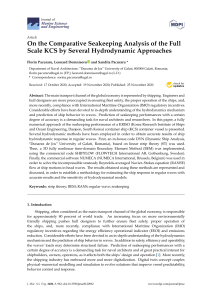ω β ω ω ω π λ ω ω β ω β β ω π ω β ω π ω β ω π ω β ω π ω β ω
advertisement
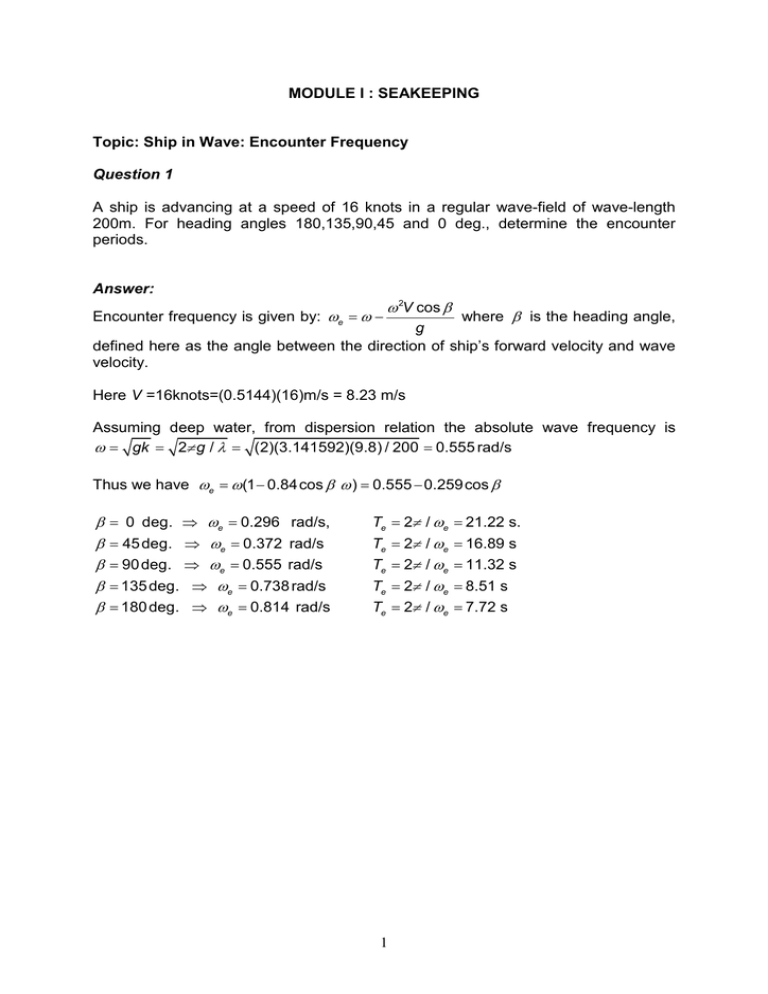
MODULE I : SEAKEEPING Topic: Ship in Wave: Encounter Frequency Question 1 A ship is advancing at a speed of 16 knots in a regular wave-field of wave-length 200m. For heading angles 180,135,90,45 and 0 deg., determine the encounter periods. Answer: Encounter frequency is given by: ωe = ω − ω 2V cos β where β is the heading angle, g defined here as the angle between the direction of ship’s forward velocity and wave velocity. Here V =16knots=(0.5144)(16)m/s = 8.23 m/s Assuming deep water, from dispersion relation the absolute wave frequency is ω = gk = 2π g / λ = (2)(3.141592)(9.8) / 200 = 0.555 rad/s Thus we have ωe = ω (1 − 0.84 cos β ω ) = 0.555 − 0.259 cos β β β β β β = 0 deg. ⇒ ωe = 0.296 rad/s, = 45 deg. = 90 deg. = 135 deg. = 180 deg. ⇒ ωe = 0.372 rad/s ⇒ ωe = 0.555 rad/s ⇒ ωe = 0.738 rad/s ⇒ ωe = 0.814 rad/s Te = 2π / ωe = 21.22 s. Te Te Te Te 1 = 2π = 2π = 2π = 2π / ωe / ωe / ωe / ωe = 16.89 s = 11.32 s = 8.51 s = 7.72 s Question 2 A person on board a ship traveling at 20 knots in a regular wave field in head wave condition observes that the successive crests are passing the ship at an interval of 8 sec. What is length of the wave? Answer: For this problem, β is 180 deg. Here, encounter period is given as 8 sec. Thus, ωe = 2π / 8 = 0.7854 rad/s For β =180 deg., 0.7854 = ω + ω 2 (20)(0.5144) = ω + 1.05ω 2 9.8 −1 ± 1 − 4(1.05)( −0.7854) This gives ω = = 0.511, −1.463 rad/s (2)(1.05) Since ω cannot be –ve, the admissible answer is ω = 0.511 rad/s. From deep-water dispersion relation, wave length is λ = 2π g / ω 2 = 236 m. 2
